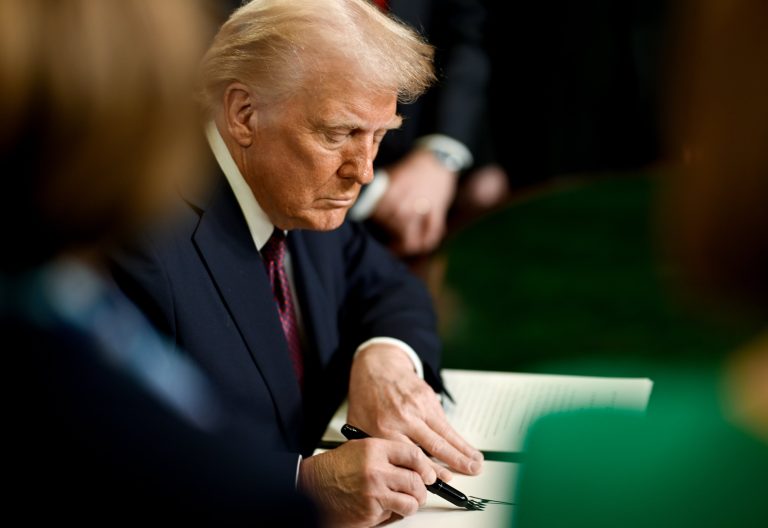Trump’s tough stance a wake up call for Kenya
By Fred.Aminga, March 10, 2025For years, the phrase “When the US sneezes, (Africa) Kenya catches a cold” has captured the ripple effect of social, political, and economic decisions on local economies.
But with the Trump administration’s protectionist stance—which has already had far-reaching consequences in trade and investment flows—the nature of global interconnectedness between nations cannot be ignored.
One of the most significant impacts of Trump’s presidency on Kenya has been the cutback on U.S. aid. With over Sh108 billion at stake, this drastic reduction has had a knock-on effect on multiple sectors in the Kenyan economy.
From local airlines and hotels to small businesses and NGOs, numerous Kenyan enterprises find themselves in financial limbo. The “stop work order” on foreign assistance programs has jeopardised the livelihoods of thousands who rely on the U.S. Agency for International Development (USAID) for employment and business opportunities.
These funding cuts have particularly strained healthcare and education programmes, where USAID has been a critical player. Many people and businesses are counting their losses after this shocking move.
Beyond aid, Kenya’s trade relationship with the U.S. has also felt the tremors of Trump’s “America First” agenda. His administration’s emphasis on nationalism led to tightened trade policies that complicated bilateral agreements.
For instance, Kenya’s ambitions to secure a favourable Free Trade Agreement (FTA) with the U.S face significant delays due to America’s shifting focus on internal economic concerns. This hesitancy has impeded Kenya’s access to a crucial export market for textiles, coffee, and horticultural products, forcing local businesses to seek alternative markets.
However, Kenya and other states are not entirely at the mercy of American policies. The global economic shifts triggered by the Trump era also present an opportunity for Kenya to reevaluate its economic strategy. With the U.S. retreating into protectionism, other global investors are looking for alternative emerging markets, including those in Africa.
With its strategic location as the gateway to East Africa, Kenya is well-positioned to attract foreign direct investment (FDI) as a result of changing global alignments. Since diversification in investment is key, Kenya must capitalise on its strengths as the global market increasingly recognises the risks of relying too heavily on the U.S given its unpredictable trade policies.
This is where Kenya can step in—by improving its investment climate and presenting itself as a stable, high-growth area. But Kenya can only achieve this by enhancing the ease of doing business, improving infrastructure, streamlining regulatory processes, and offering incentives to foreign investors.
Clearly, the uncertainty stemming from the Trump administration’s policies should serve as a wake-up call. Kenya must recognise that relying too heavily on any single economic partner—be it the U.S or any other country—is a risky strategy.
Instead, it should focus on expanding and diversifying its economic alliances. Strengthening ties with emerging global players such as China, the European Union, and intra-African trade partners could provide a buffer against future disruptions from Western markets.
Kenyans must stop the ongoing political theatrics and focus on growing the economy by leveraging sectors such as ICT, renewable energy, and agriculture, which hold immense potential.
The country’s thriving fin-tech sector has already drawn international attention. Encouraging more investments in this space could position Kenya as Africa’s digital economy hub. Similarly, the growing interest in renewable energy—particularly wind and solar power—offers another avenue for attracting FDI, especially from European and Asian markets that are actively seeking sustainable projects.
Investors often cite red tape and regulatory inefficiencies as major obstacles to doing business in Kenya. Simplifying such processes, cutting down on corruption, and establishing investor-friendly policies can significantly boost Kenya’s attractiveness as an investment hub during these turbulent global economic times.
This is the time for Kenyans to wake up and smell the coffee by position the country as a key player on the global stage—one that no longer simply catches a cold when the U.S. Sneezes. Something must give. Hoping the political shenanigans will not make it impossible to change.
The writer is People Daily’s Business Lead
